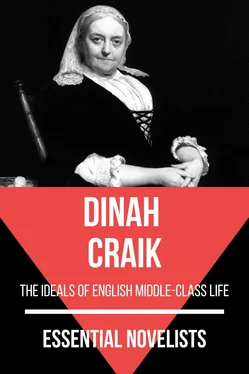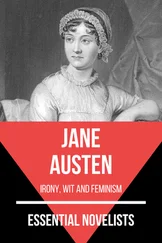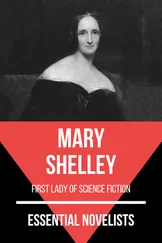“Probably visitors. Resident country-folks like their meals best under a decent roof-tree. I should not wonder if this were not one of Mr. March’s vagaries.”
“Don’t say vagaries — he is an old man.”
“Don’t be reproachful — I shall say nought against him. Indeed, I have no opportunity, for there they both are coming hither from the house.”
Sure enough they were — Miss March helping her father across the uneven bit of common to the gate which led to the field. Precisely at that gate we all four met.
“’Tis useless to escape them,” whispered I to John.
“I do not wish — why should I?” he answered, and held the gate open for the father and daughter to go through. She looked up and acknowledged him, smiling. I thought that smile and his courteous, but far less frank, response to it, would have been all the greeting; but no! Mr. March’s dull perceptions had somehow been brightened up. He stopped.
“Mr. Halifax, I believe?”
John bowed.
They stood a moment looking at one another; the tall, stalwart young man, so graceful and free in bearing, and the old man, languid, sickly, prematurely broken down.
“Sir,” said the elder, and in his fixed gaze I fancied I detected something more than curiosity — something of the lingering pensiveness with which, years ago, he had turned back to look at John — as if the lad reminded him of some one he knew. “Sir, I have to thank you —”
“Indeed, no thanks are needed. I sincerely hope you are better today?”
Mr. March assented: but John’s countenance apparently interested him so much that he forgot his usual complainings. “My daughter tells me you are our neighbours — I am happy to have such friendly ones. My dear,” in a half audible, pensive whisper to her, “I think your poor brother Walter would have grown up extremely like Mr. — Mr. —”
“Mr. Halifax, papa.”
“Mr. Halifax, we are going to take tea under the trees there — my daughter’s suggestion — she is so fond of rurality. Will you give us the pleasure of your company? You and”— here, I must confess, the second invitation came in reply to a glance of Miss March’s —“your friend.”
Of course we assented: I considerably amused, and not ill-pleased, to see how naturally it fell out that when John appeared in the scene, I, Phineas, subsided into the secondary character of John’s “friend.”
Very soon — so soon that our novel position seemed like an adventure out of the Arabian Nights — we found ourselves established under the apple-tree, between whose branches the low sun stole in, kissing into red chestnut colour the hair of the “nut-browne mayde,” as she sat, bareheaded, pouring into small white china cups that dainty luxury, tea. She had on — not the grey gown, but a white one, worked in delicate muslin. A bunch of those small pinky-white roses that grew in such clusters about our parlour window nestled, almost as if they were still growing, in her fair maiden bosom.
She apologized for little Jack’s having “stolen” them from our domains for her — lucky Jack! and received some brief and rather incoherent answer from John about being “quite welcome.”
He sat opposite her — I by her side — she had placed me there. It struck me as strange, that though her manner to us both was thoroughly frank and kind, it was a shade more frank, more kind, to me than to him. Also, I noted, that while she chatted gaily with me, John almost entirely confined his talk to her father.
But the young lady listened — ay, undoubtedly she listened — to every word that was said. I did not wonder at it: when his tongue was once unloosed few people could talk better than John Halifax. Not that he was one of your showy conversationalists; language was with him neither a science, an art, nor an accomplishment, but a mere vehicle for thought; the garb, always chosen as simplest and fittest, in which his ideas were clothed. His conversation was never wearisome, since he only spoke when he had something to say; and having said it, in the most concise and appropriate manner that suggested itself at the time, he was silent; and silence is a great and rare virtue at twenty years of age.
We talked a good deal about Wales; John had been there more than once in his journeyings; and this fact seemed to warm Miss March’s manner, rather shy and reserved though it was, at least to him. She told us many an innocent tale of her life there — of her childish days, and of her dear old governess, whose name, I remember, was Cardigan. She seemed to have grown up solely under that lady’s charge. It was not difficult to guess — though I forget whether she distinctly told us so — that “poor mamma” had died so early as to become a mere name to her orphan daughter. She evidently owed everything she was to this good governess.
“My dear,” at last said Mr. March, rather testily, “you make rather too much of our excellent Jane Cardigan. She is going to be married, and she will not care for you now.”
“Hush! papa, that is a secret at present. Pray, Mr. Halifax, do you know Norton Bury?”
The abruptness of the question startled John, so that he only answered in a hurried affirmative. Indeed, Mr. March left him no time for further explanation.
“I hate the place. My late wife’s cousins, the Brithwoods of the Mythe, with whom I have had — ahem! — strong political differences — live there. And I was once nearly drowned in the Severn, close by.”
“Papa, don’t speak of that, please,” said Miss March, hurriedly; so hurriedly that I am sure she did not notice what would otherwise have been plain enough — John’s sudden and violent colour. But the flush died down again — he never spoke a word. And, of course, acting on his evident desire, neither did I.
“For my part,” continued the young lady, “I have no dislike to Norton Bury. Indeed, I rather admired the place, if I remember right.”
“You have been there?” Though it was the simplest question, John’s sudden look at her, and the soft inflection of his voice, struck me as peculiar.
“Once, when I was about twelve years old. But we will talk of something papa likes better. I am sure papa enjoys this lovely evening. Hark! how the doves are cooing in the beech-wood.”
I asked her if she had ever been in the beech-wood.
No; she was quite unacquainted with its mysteries — the fern-glades, the woodbine tangles, and the stream, that, if you listened attentively, you could hear faintly gurgling even where we sat.
“I did not know there was a stream so near. I have generally taken my walks across the Flat,” said Miss March, smiling, and then blushing at having done so, though it was the faintest blush imaginable.
Neither of us made any reply.
Mr. March settled himself to laziness and his arm-chair; the conversation fell to the three younger persons — I may say the two — for I also seceded, and left John master of the field. It was enough for me to sit listening to him and Miss March, as they gradually became more friendly; a circumstance natural enough, under the influence of that simple, solitary place, where all the pretences of etiquette seemed naturally to drop away, leaving nothing but the forms dictated and preserved by true manliness and true womanliness.
How young both looked, how happy in their frank, free youth, with the sun-rays slanting down upon them, making a glory round either head, and — as glory often does — dazzling painfully.
“Will you change seats with me, Miss March? — The sun will not reach your eyes here.”
She declined, refusing to punish any one for her convenience.
“It would not be punishment,” said John, so gravely that one did not recognize it for a “pretty speech” till it had passed — and went on with their conversation. In the course of it he managed so carefully, and at the same time so carelessly, to interpose his broad hat between the sun and her, that the fiery old king went down in splendour before she noticed that she had been thus guarded and sheltered. Though she did not speak — why should she? of such a little thing — yet it was one of those “little things” which often touch a woman more than any words.
Читать дальше












